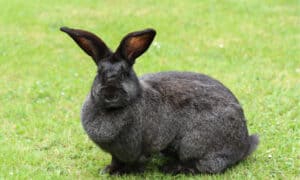Rabbits are by far the most mysterious, cutest, and lovable creatures around. With their fur-twitching noses and expressive ears, they have won over the hearts of many pet owners. But beyond their appearances lies an interesting form of rabbit behavior that often goes unnoticed by many. This technique rabbits use is what is commonly referred to as rabbit thumping.
Have you ever wondered why your pet rabbit starts thumping its hind legs on the ground, creating a drumbeat sound that echoes throughout the room? Well, It’s not just noise. In fact, it’s a way of communication that provides valuable insights into your bunny’s thoughts. Read on as A-Z Animals uncover the enigma surrounding rabbit thumping.
Origin Behind Rabbit Thumping
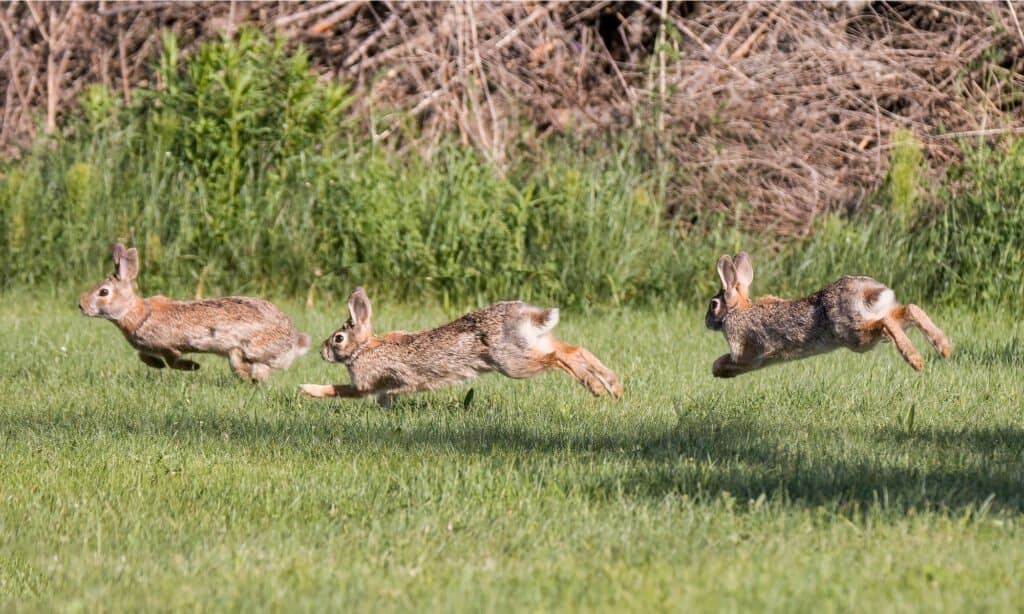
Rabbit thumping serves as an alarm system, alerting rabbits in the warren to remain watchful and get ready for an escape.
©Fiona M. Donnelly/Shutterstock.com
Stemming from their wild habitat, rabbits have developed a survival tactic known as thumping. When a rabbit detects danger in the vicinity, like the presence of a lurking predator, it engages in a drumming sequence. This is an alarm system that warns other rabbits in the warren to be vigilant. Essentially, it’s their way of saying that there’s danger and be prepared for what’s heading their way.
Reasons Why Rabbits Thump
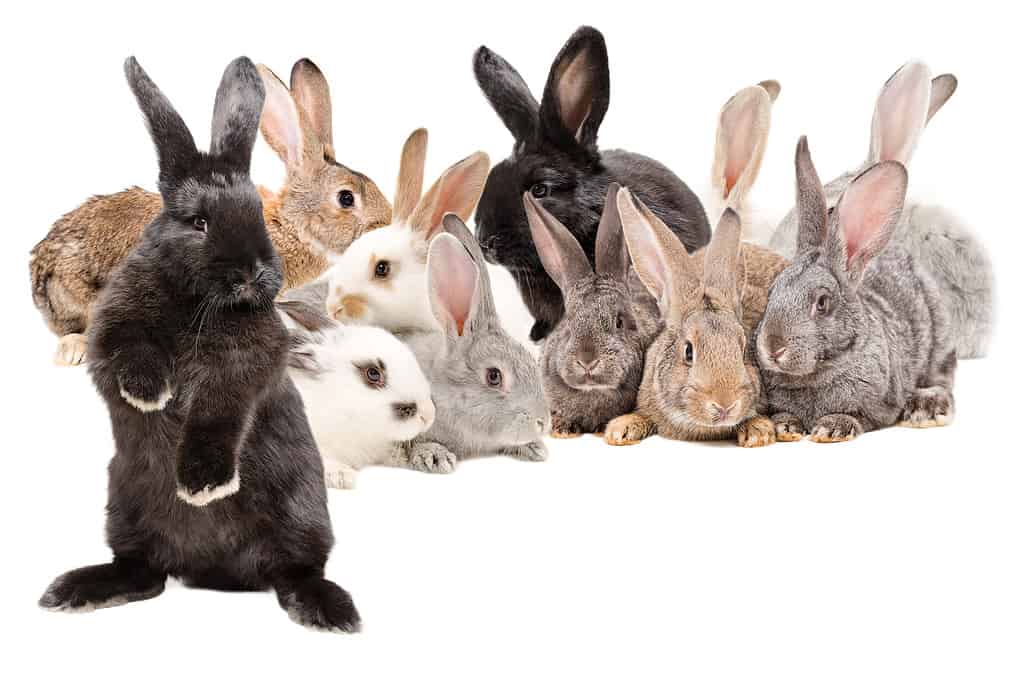
Rabbits sometimes assert their dominance over other rabbits with thumping.
©iStock.com/Sonsedska
It’s important for rabbit owners to understand the motivations behind rabbit thumping to interpret their pet’s behavior and respond accordingly. Here are a few common explanations for why rabbits might thump.
Alertness
Rabbits’ thumping movements show that they are concerned about something. They thump in response to noise, unusual movements, or if they sense something that is a potential threat around them. Thumping serves as a way for them to warn their furry companions that something has grabbed their attention.
Irritation
Sometimes, rabbits can become agitated when someone picks them up incorrectly, and they feel uncomfortable. Also, they just might not be in the mood to interact with their human companions or other rabbits, especially ones that they don’t get along with.
Stress
When rabbits are scared or stressed, they start thumping to deal with their emotions. This is especially common in situations that make them anxious. For example, when you take your rabbit to the vet, their routine suddenly changes. Therefore, thumping is a way to show they feel uneasy.
Seeking attention
Because rabbits are very intelligent, they have figured out that thumping is a way for them to grab one’s attention. Whether they’re seeking affection, playtime, tasty treats, or just looking to engage with their companions, they use their thumping action.
Territorial behavior
Rabbits might thump to establish their dominance over territory. This behavior is observed in rabbits that haven’t been neutered or spayed during certain phases when they feel the need to assert their dominance over their surroundings or other rabbits.
Communication
Rabbits use thumping as a means to communicate with each other when they are part of a bonded pair or group. This behavior could be a way for them to signal socially or coordinate their activities when living together.
Discomfort
Rabbits may thump when they feel physically uncomfortable or are in pain. If a rabbit starts thumping without any cause in their surroundings, it is important to carefully assess for indications of sickness or injury.
Warning Signs When Your Rabbit Feels Threatened
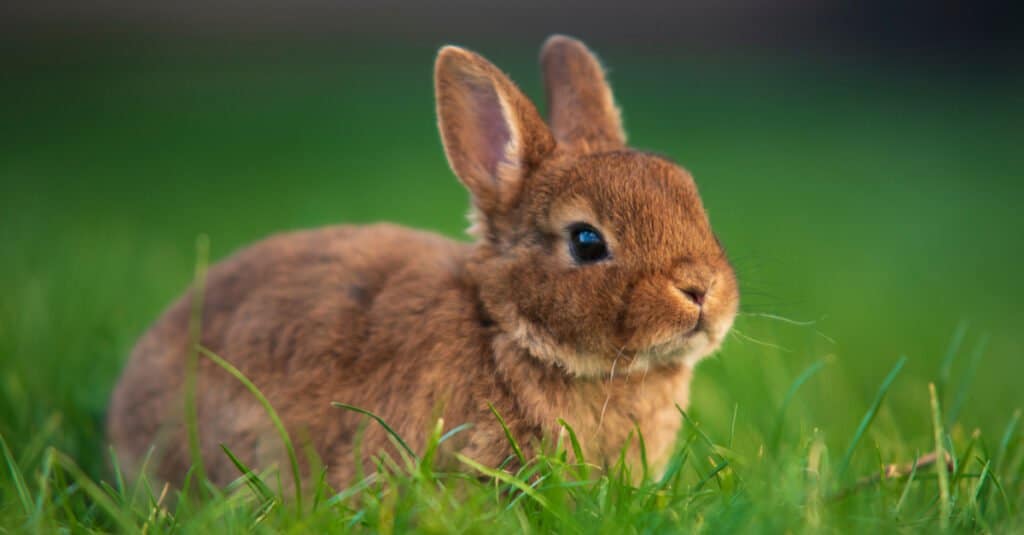
Rabbits have large eyes on either side of their heads, which enables them to spot predators from both sides.
©Borievky/Shutterstock.com
Enlarged eyes: Their eyes may become large and wide open, indicating their heightened state of alertness and readiness to react.
Upright tail and ears: In some cases, rabbits may raise their tails and ears when they thump. In addition, this is a rabbit’s way of making themselves appear larger or more imposing as a defensive response.
Rapid breathing: A thumping rabbit may show signs of rapid breathing as their body prepares for a potential escape or defensive action. Moreover, it causes an erratic heartbeat.
Retreat behavior: After thumping to warn off a threat, rabbits seek out a place to hide or escape to a secure location within their enclosure. Once hidden, your rabbit will feel safe and more at ease.
Vocalizations: While not always present, some rabbits may vocalize with soft grunts and growl sounds when they feel threatened or stressed.
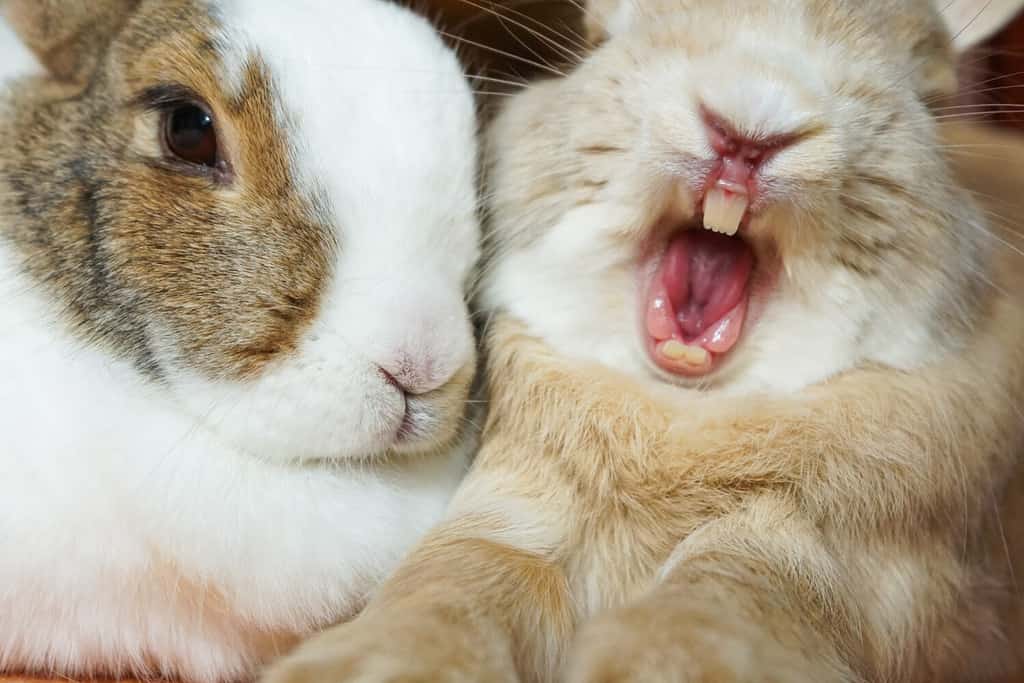
©Thurid_with_th/Shutterstock.com
Vigorous hind leg thumping: If your bunny unexpectedly begins to thump its back legs on the ground, it’s a sign that there may be a threat or danger in the vicinity.
Increased alertness: This involves the act of pricking up its ears, lifting its head, and carefully surveying the surroundings to identify the origin of the perceived danger.
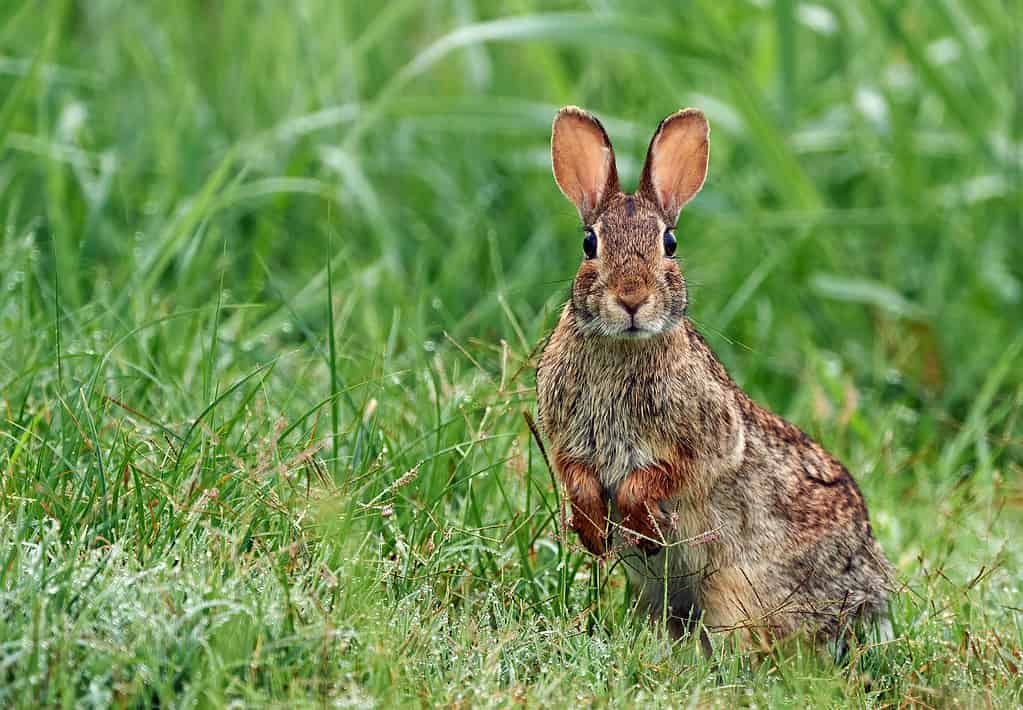
Increased alertness involves surveying the rabbit’s surroundings.
©ArCaLu/Shutterstock.com
Tense posture: A rabbit that feels threatened may freeze in place or adopt a tense posture. Therefore, they prepare for a quick escape or remain still to avoid drawing attention to themselves.
The photo featured at the top of this post is © LNbjors/Shutterstock.com
Thank you for reading! Have some feedback for us? Contact the AZ Animals editorial team.






